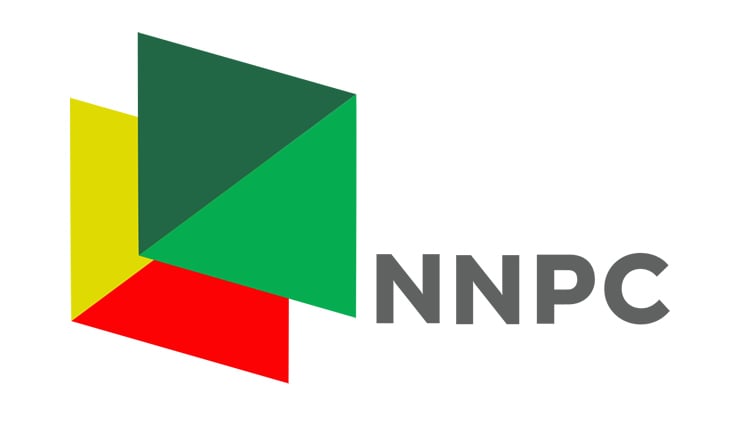The Office of the Auditor-General for the Federation has uncovered 28 major financial irregularities linked to the Nigerian National Petroleum Company Limited, involving questionable payments, undocumented spending, and breaches of financial rules. The red flags cover N30.1bn, $51.6m, £14.3m, and €5.17m carried out during the 2021 financial year. When converted to naira, the total amount is about N61.1bn.
The findings are contained in the Auditor-General’s 2022 Annual Report on Non-Compliance (Volume II), which has been submitted to the National Assembly. The report accused NNPCL of weak internal controls, unauthorised virements, tax infractions, irregular procurement, delayed projects, and unverified settlements.
“These findings show systemic weaknesses that expose public funds to avoidable risk,” the Auditor-General wrote. “Where documents were not provided, payments were unjustified. Where approvals were absent, expenditure broke the law. Recovery and sanctions must follow.”
The latest discoveries follow earlier audit reports that exposed long-running financial discrepancies at the national oil company. Between 2017 and 2021, the Auditor-General flagged the diversion of N2.68tn and $19.77m. The breakdown includes N1.33tn in 2017, N681.02bn in 2019, N151.12bn and $19.77m in 2020, and N514bn in 2021. These past reports point to repeated cases of unremitted funds, unsupported transfers, and irregular withdrawals that raise questions about governance in the petroleum sector.
One of the most striking issues in the new audit is the undocumented expenditure of £14.32m at NNPCL’s London Office. The auditors said the company failed to provide documents to justify the spending, which covered personnel costs, fixed contract expenses, and other operations. The amount included £5.94m for personnel, £1.43m for fixed contracts, and £6.94m for other expenses.
The report said NNPCL breached several Financial Regulations, including Paragraph 112, which requires accounting officers to put in place proper internal controls, and Paragraph 603(1), which mandates full documentation of every payment voucher. The audit team said it was not allowed to verify how the funds were spent and could not confirm whether due process was followed.
The Auditor-General warned that the lack of documentation shows a clear weakness in NNPCL’s internal control system. In its response, NNPCL management said the London Office works as a service unit with an approved annual budget and keeps detailed records. The company said it was willing to provide documents but that the audit query did not specify which items were in question. However, the Auditor-General rejected the explanation and insisted that the query remains valid until full accountability is provided.
Another major issue is €5.16m paid to a contractor without evidence of engagement. Auditors also flagged several dollar transactions, including $22.84m in Direct Sales Direct Payment settlements that lacked supporting records, $12.44m for a delayed generator project at the Mosimi depot, and $1.8m paid under an irregular contract extension for a bunkering vessel.
Additional queries include $2m in provisional payments without invoices and $1.03m paid to a company that had no power of attorney. In all, $51.67m was marked as irregular.
The naira-related infractions also reveal several breaches. The audit accused NNPCL of paying funds without approvals, spending above approved budgets, and failing to remit statutory surpluses. One major query involved the non-remittance of N12.72bn to the General Reserve Fund. Another involved N3.44bn paid by the Chief Financial Officer without approval from the Group Managing Director.
Other infractions include N2.37bn irregularly paid to staff as status-car cash options, N1.21bn paid to contractors without payment certificates, N474.46m moved through unauthorised virements, N355.43m spent on abandoned refinery cargoes, and N292.6m released for an Accident and Emergency hospital project that was abandoned.
Auditors also flagged N82.6m in undocumented reimbursable expenses, N152m spent on irregular police procurement, N145.9m in repeated consultancy renewals, and N25m paid as extra consultancy fees without fresh deliverables.
NNPCL also paid N246.19m for a contract with no proof of execution. Another item listed N46.2m in unpaid withholding tax. A high-risk audit issue linked N6.24bn in payments made without supporting documents, while another involved N1.36bn processed through unauthorised virements. In total, domestic infractions stood at N30.11bn.
The company also failed to apply statutory deductions in several cases. For example, N247.18m and $529,863.24 were paid without VAT, withholding tax, or stamp duty. Another $8,355.18 was paid without necessary deductions.
A large part of the audit centred on procurement breaches. One case involved a vessel charter where a contractor switched the approved vessel with another one at a higher daily rate, adding $1.93m in extra costs over 30 months. Another case involved emergency procurement of custody transfer meters costing $8.23m without justification. The audit also flagged several consultancy payments lacking proper engagement records.
The Auditor-General recommended immediate recovery of all unsupported payments and sanctions against officers responsible for the breaches. He added that any officer who fails to provide documents must refund the money personally.
The infractions took place under the tenure of Mele Kyari, who served as Group Chief Executive Officer from 2019 until he was removed earlier this year and replaced with Bayo Ojulari.
